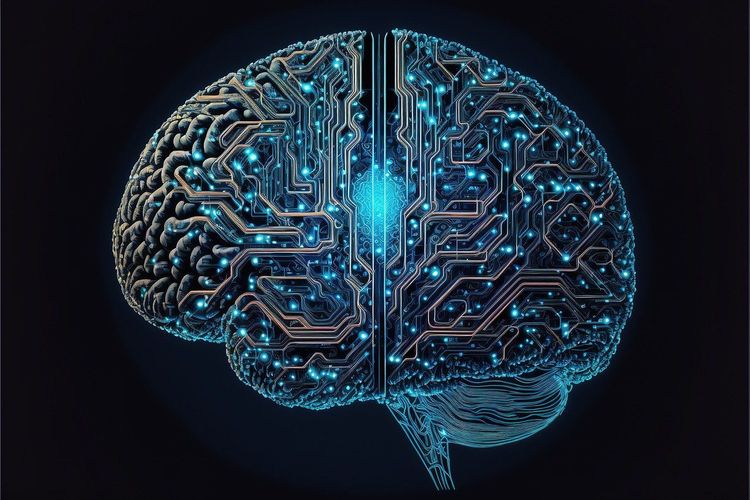As 2023 comes to a close, it is an opportune moment to reflect on the remarkable advancements and ethical discussions surrounding artificial intelligence this past year. The introduction of chatbots like Bing Chat and Google Bard highlighted significant natural language processing capabilities, while generative AI models such as DALL-E 3 and MidJourney V6 astonished audiences with their creative image outputs.
Despite these innovations, apprehensions about the potential risks of AI have also surfaced. The European Union's AI Act aimed to regulate specific uses of this technology, while the Biden Administration established guidelines for its development.
With the pace of innovation expected to accelerate, many are asking: What lies ahead for AI? To uncover insights, we spoke with prominent venture capitalists specializing in AI startups to gather their predictions for 2024. Will we encounter another "AI winter" as enthusiasm meets reality, or will groundbreaking advancements drive further adoption across various sectors? How will policymakers and the public react?
VCs from distinguished firms such as Bain Capital Ventures, Sapphire Ventures, Madrona, General Catalyst, and others shared their views on a range of topics, including the future of generative AI, GPU shortages, AI regulations, and applications for climate change. While opinions on risks and timelines vary, there is a consensus: 2024 is poised to be a pivotal year for artificial intelligence. Read on for their most daring predictions and insights.
The Rise and Fall of Generative AI Startups
"Many generative AI companies will struggle to survive. Startups that didn’t secure substantial funding this year face an uncertain future. Competition will intensify, especially among those built on platforms like OpenAI, exposing them to platform risks and dwindling fundraising opportunities. At Day One, we've shifted our focus away from these deals.
I'm optimistic about AI's role in biotech, genomics, climate, and industrial applications. AI can revolutionize how scientists develop treatments and diagnostics using human genomic data, with companies like Mindstate leveraging AI to provide solutions for treatment-resistant PTSD. Similarly, advancements in fertility, reproductive health, and longevity will redefine human lifespan and family planning. In the fight against climate issues, AI companies like Vibrant Planet are utilizing machine learning to prevent global wildfires.
Additionally, the idea that AI can interpret human thoughts and visualize them is intriguing, with potential implications for understanding consciousness."
Masha Bucher, Founder and General Partner at Day One Ventures
Convergence of Data Modalities in Multimodal Models
"In 2024, the fusion of data modalities—text, images, audio—into multimodal models will transform AI capabilities. Startups adopting these models will enhance decision-making and user experiences, leading to innovative applications in sectors like manufacturing, e-commerce, and healthcare. As demands on AI infrastructure expand, we anticipate innovations in multimodal databases. While not all use cases will require these models, first-generation LLM startups will face fierce competition and pressure to innovate."
Cathy Gao, Partner at Sapphire Ventures
"We expect multi-modal retrieval and inference to become central in AI products. Current AI applications are mostly text-focused, but users seek software that engages across various modalities. If successful, these architectures could deliver more accurate, human-like outputs, enhancing productivity and collaboration."
Rak Garg, Principal at Bain Capital Ventures
"AI's growth will lead to novel applications, particularly in the cumbersome healthcare sector. By integrating computer vision for cancer detection and using generative AI to streamline paperwork, we can dramatically reduce operational costs in an industry that spends nearly $4.3 trillion annually."
Amit Garg, Managing Partner at Tau Ventures
Democratization of AI Through Open Source
"We anticipate increased releases of open-source models in 2024, notably from large tech firms like Tesla and Uber, which have historically supported open-source projects. These efforts may lead to the formation of new companies and substantial funding rounds."
Vivek Ramaswami, Partner at Madrona and Sabrina Wu, Investor at Madrona
"As we move to H2 2024, multimodal models will likely become the industry standard, with major developers starting to release select open-source models."
Chris Kauffman, Partner at General Catalyst
GPU Shortages: Persistent Problem or Temporary Setback?
"2024 will mark the rise of real-time diffusion applications. We have already observed significant theoretical advancements in diffusion model inference, and we anticipate more developments in real-time image, audio, and video generation."
Slater Stich, Partner at Bain Capital Ventures
"The GPU shortage is challenging for startups, but innovative architectures that maximize efficiency could help alleviate this issue. I foresee substantial investment in models that are less resource-intensive."
Rak Garg, Principal at Bain Capital Ventures
Chris Kauffman, Partner at General Catalyst
"While others predict a GPU shortage, I argue that the market will stabilize as major suppliers ramp up production, allowing broader access for developers."
Jess Leao, Partner at Decibel VC
Apple and Google: Sleeping Giants?
"We predict 2024 will unveil significant developments from Apple, potentially launching their own LLM, Ajax GPT, across various applications and devices. These moves could notably influence regulatory discussions in the tech landscape."
Vivek Ramaswami, Partner at Madrona and Sabrina Wu, Investor at Madrona
"Next year, Google will dominate discussions with its substantial investment in Gemini, providing developers with advanced capabilities that could set new benchmarks for foundational AI models."
Jess Leao, Partner at Decibel VC
Preparing for the Long-Term AI Shift
"Those who engaged with AI in 2023 will soon learn about chiplets as new semiconductor architectures emerge. Innovations in packaging and interconnects will become paramount."
Chris Kauffman, Partner at General Catalyst
“The integration of edge and cloud AI will enhance performance and privacy, making hybrid models essential as we strive to meet evolving enterprise and consumer demands.”
Jimmy Kan, Partner at Anzu Partners







